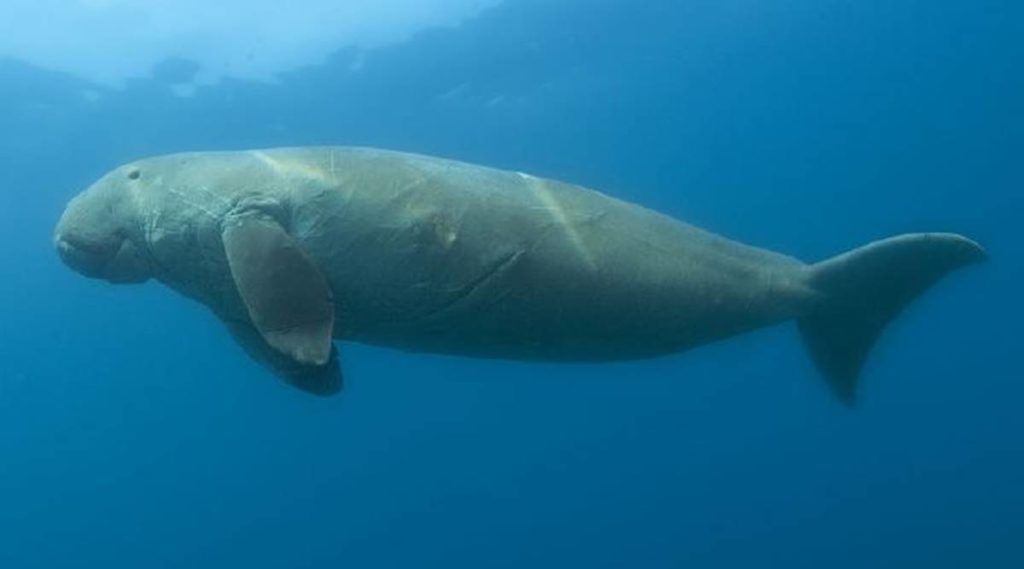ForumIAS announcing GS Foundation Program for UPSC CSE 2025-26 from 19 April. Click Here for more information.
ForumIAS Answer Writing Focus Group (AWFG) for Mains 2024 commencing from 24th June 2024. The Entrance Test for the program will be held on 28th April 2024 at 9 AM. To know more about the program visit: https://forumias.com/blog/awfg2024
Contents
What is the News?
The Tamil Nadu State government has announced plans to set up a 500-sq km Dugong Conservation Reserve in Palk Bay. This is India’s first dugong conservation reserve.
About Dugongs
Dugongs(Dugong dugon), also called the sea cow, is a herbivorous mammal. They can grow up to three meters long, weigh about 300 kilograms and live for about 65 to 70 years grazing on seagrass and coming to the surface to breathe.
Habitat: They are found in over 30 countries and in India are seen in the Gulf of Mannar, Gulf of Kutch, Palk Bay, and the Andaman and Nicobar Islands.
Diet: They are largely dependent on seagrass communities for subsistence and are thus restricted to the coastal habitats which support seagrass meadows.
Population: According to a 2013 survey report of the Zoological Survey of India (ZSI), there were only about 200 dugongs in the Gulf of Mannar in Tamil Nadu, the Andaman and Nicobar Islands and the Gulf of Kutch in Gujarat.
Conservation Status of Dugongs
IUCN Status: Vulnerable
Indian Wild (Life) Protection Act, 1972: Schedule I
CITES: Appendix I
Significance of Dugongs
They are an important part of the marine ecosystem, and their depletion will have effects all the way up the food chain.
Threats faced by Dugongs
Loss of seagrass habitats, water pollution and degradation of the coastal ecosystem due to developmental activities have made life tough for Dugongs.
Dugongs are also victims of accidental entanglement in fishing nets and collision with boats, trawlers.
Source: This post is based on the article “What are dugongs, where is India’s first dugong conservation reserve” published in Indian Express on 7th September 2021.





